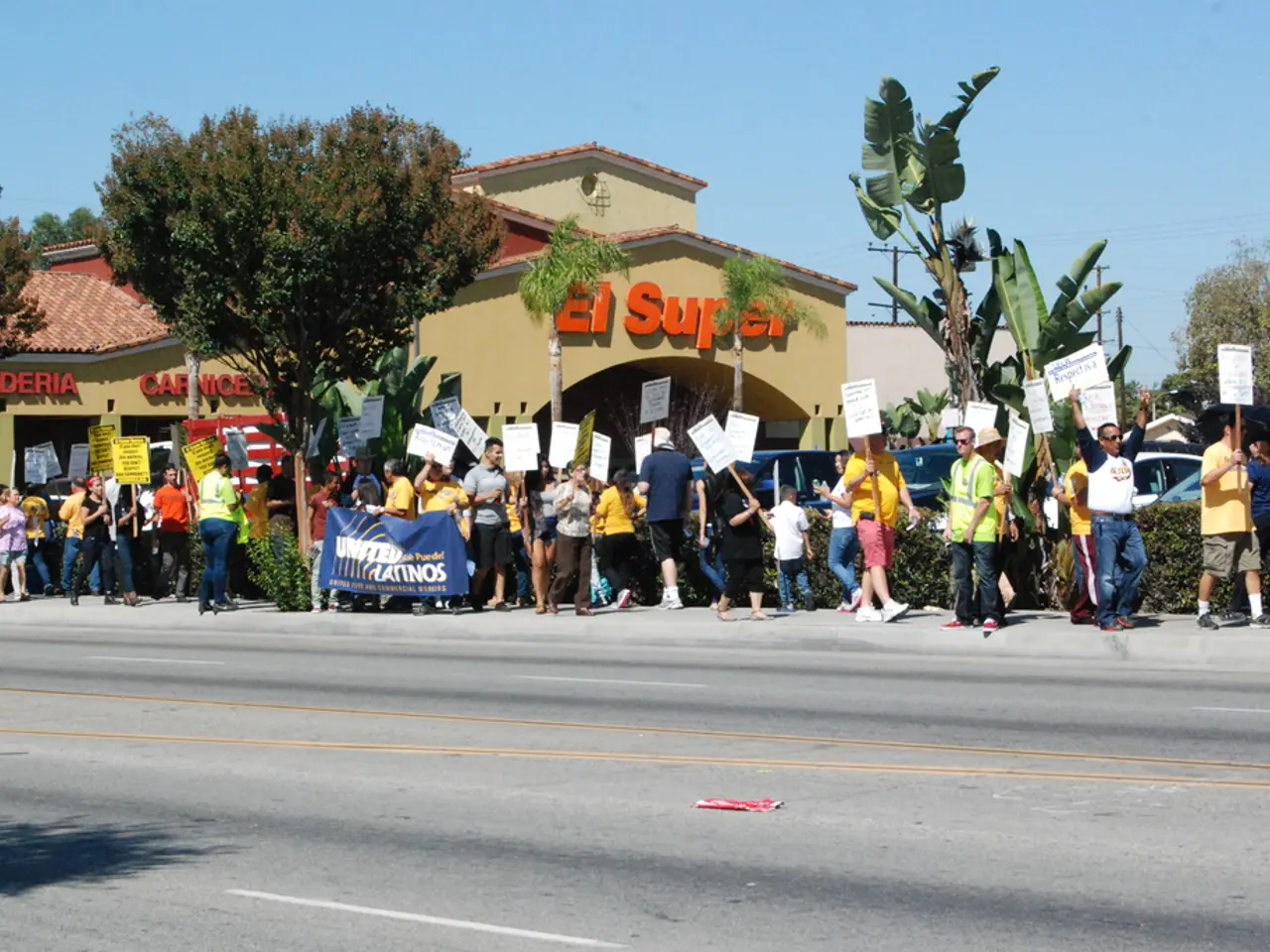Billionaire clash with Bernie: Is there an alternative for climate action?
In the ongoing Democratic primary race, climate change has emerged as a key issue for voters across various states. According to a new survey from the Pew Research Center, a majority of Americans believe that combating climate change should be a key focus for the president.
The concern for the environment is particularly evident among Democratic voters. In wind-energy rich Iowa, voters prioritized climate change ahead of other issues, showing they are ahead of the pundits and political classes. In New Hampshire and Nevada, climate change is a top concern for a quarter of Democratic voters, surpassing income inequality and foreign policy. An Edison entrance poll in Nevada shows 25% of voters prioritizing climate change as their number one issue.
One of the candidates vying for the Democratic nomination, Bernie Sanders, has made climate change a cornerstone of his campaign. His climate plan includes a $16.3 trillion spending package through 2035, aiming to transition the U.S. to 100% renewable energy for electricity and transportation, and reducing emissions by 71% over that time. Sanders' plan also includes phasing out fracking and coal nationwide, investing in green technology, and creating a restoration and renewables-based economy that could generate over 20 million jobs.
Sanders' ambitious Green New Deal stance has earned him high marks from environmental organisations. He received the highest overall marks from both Greenpeace (A+) and the Center for Biological Diversity Action Fund (A), followed closely by Elizabeth Warren.
However, another contender, Mike Bloomberg, has a different approach. Bloomberg, who has announced his candidacy and has increased his annual political and related contributions to over $3.3 billion, has showered politicians, NGOs, and other influencers with significant financial support. His political campaign is primarily influenced and financially supported by his own considerable wealth as a billionaire, as well as connections within the business and financial sectors.
The Democratic National Committee is reportedly concerned about losing control of the party to Sanders' Democratic Socialist political revolutionaries. Bloomberg's main goal, according to sources, is to defend the status quo. As of February 25, 2020, Bloomberg has spent over $500 million on advertising and social media influence.
Despite the differences in approach, all Democratic candidates are significantly ahead of President Trump on environmental policies. Sanders leads in both delegates and the popular vote after winning the first three primary contests: Iowa, New Hampshire, and Nevada.
As the primary race continues, the focus on climate change is likely to remain a defining factor in the choices voters make. The candidates' stances on this critical issue will continue to shape the direction of the Democratic Party and the nation's approach to addressing climate change.
Read also:
- Russia, according to Zelensky, lacks the prowess for launching another significant offensive.
- Russia's Latest Peace Proposals for Donbas: New Diplomatic Landscape Emerges amid Alaska Summit, Potentially Opening Ceasefire Opportunities
- Amidst India's escalating climate crisis, transgender individuals continue to persevere
- Contentious Discussion Surrounding the Movie Release of "Planet of the Humans"








